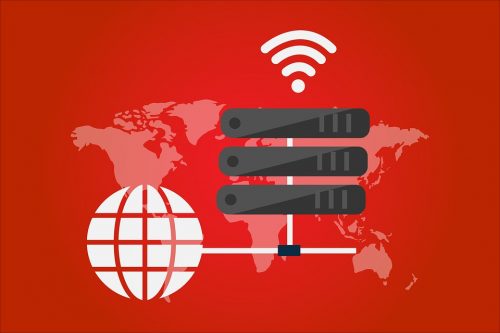
Are you seriously thinking of looking for a therapist online because you cannot handle the stress of securing your cyber information? You should know that your worries can end once you protect your dedicated server, a.k.a the central computer.
This task does not have a difficulty level of 100, frankly speaking. Here are a few ways to accomplish that.
Obtain A Firewall
Securing your computer can take place by doing it yourself or making use of a dedicated server hosting company that is committed to providing the safeguarding needs of the dedicated server, such as the software and hardware firewalls. Having these things installed in your computer is highly essential to keep viruses and hackers from ever stealing information from the system.
If you are one of those PC handlers who use Linux-based servers, you may want to consider getting the Advanced Policy Firewall (APF). The primary reason is that it has a policy-based system that is quite easy to configure and utilize. Aside from that, you can also install a program called Brute Force Detection (BFD), which is mainly designed to see if there are abundant log-in attempts that come from a single IP address in just a short period. In case it gets detected, the program will then block the said address in the server firewall so that it will not be able to connect to the server again.

Keep in mind that APF and BFD work in tandem. Meaning to say, you cannot install the BFD if you have not installed APF first since they need each other to function well. Furthermore, BFD requires some files that only APF has to run smoothly.
Ask Users To Sign In
The users should get required to log in through other user accounts as well as an alternative of being able to log in to root directly. The idea is similar to when Google, Yahoo! or another website asks for one more address to ensure that you are the one who’s trying to access the account. This form of defense aims to aid in server protection against potential hacking attempts.
You can do customization as well so that the e-mails will be delivered to you every time that there is a root login to your server. It gives you a chance to keep track of both authorized and unauthorized logins for future preference.
In terms of security purposes, it is recommended that you use an off-site e-mail address to prevent a hacker from opening your e-mail account following a successful hacked login. Since it is still not a perfect system because hackers can log in to SSH by creating their SSH connection, you should update your preferred antivirus program whenever possible. More than that, the default SSH port should also be altered.

Check For Rootkits
You have to make sure as well that you or the server hosting company can run a rootkit checker on your dedicated server once a month at the least. This tool may or may not be available to download for free.
Additionally, guarantee that you have disabled any possible dangerous PHP functions. You should also have Apache DOS Resistance tuning (mod_evasive) and Apache Security enhancement (mod_security). In truth, the mod_security keeps tabs of attempted server intrusions and assists in blocking attacks on web applications. The mod_evasive module, meanwhile, provides evasive action when there is an HTTP DoS, DDoS or brute force attack. The module can easily get configured to communicate with server firewalls, ipchains, and routers and become developed for network managing and detection purposes.
Other Considerations
Server abuse has always been reported via e-mails and syslog facilities. Other methods that you can use to secure your dedicated servers is disabling services that are no longer in use, installing a virus scanner, and scanning for FTP uploads as often as you can. Passwords can also be strengthened by making them at least ten characters long and using special characters.
Final Thoughts
The security measures mentioned above are merely some of the things that you can implement to secure a dedicated server. You can try learning how to do it on your own if you have time. In case it seems challenging for you, you may work with a dedicated server hosting company that has experts on in this field. However, remember that server protection is something that you ought to prioritize from the start to avoid mishaps later.
Good luck!